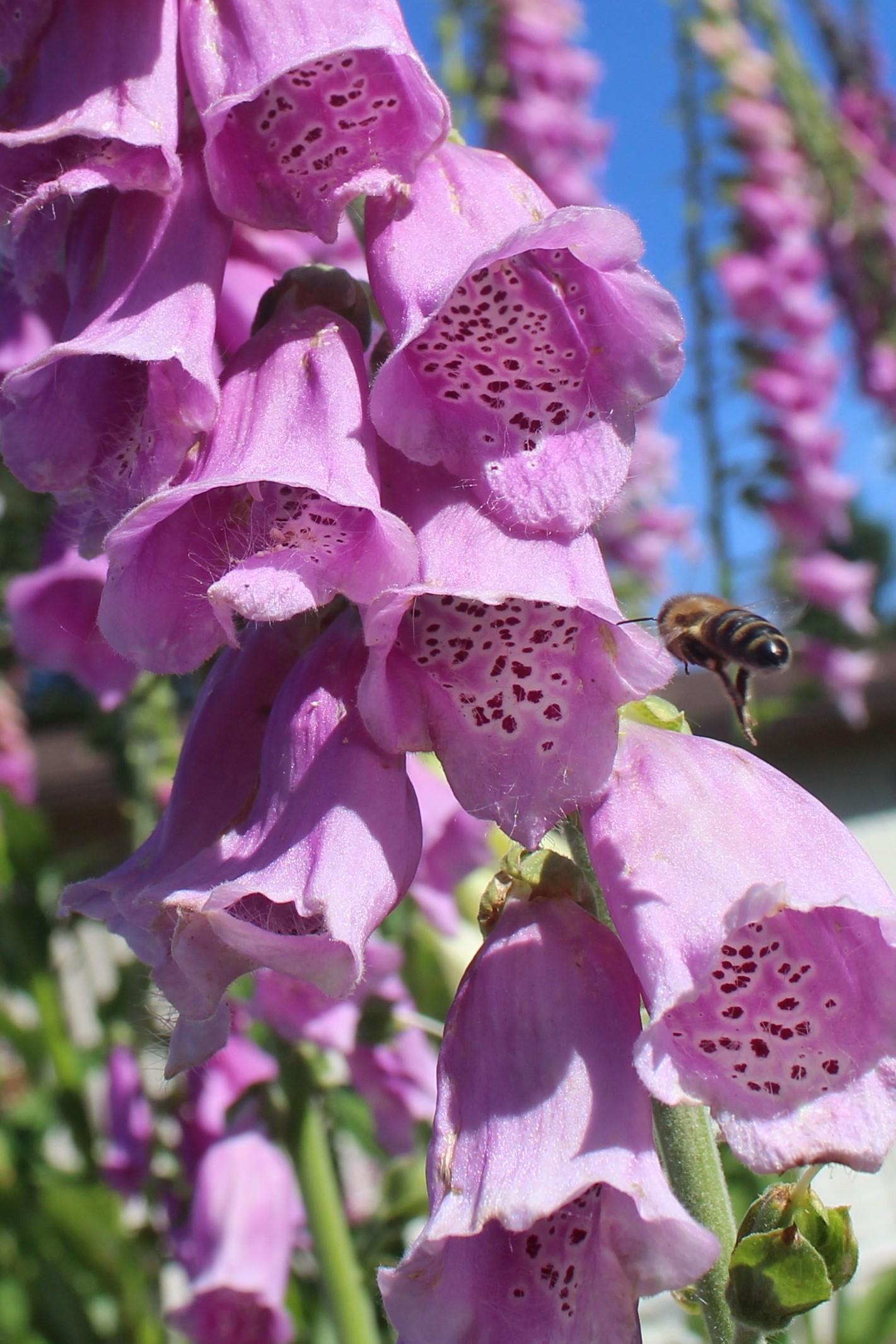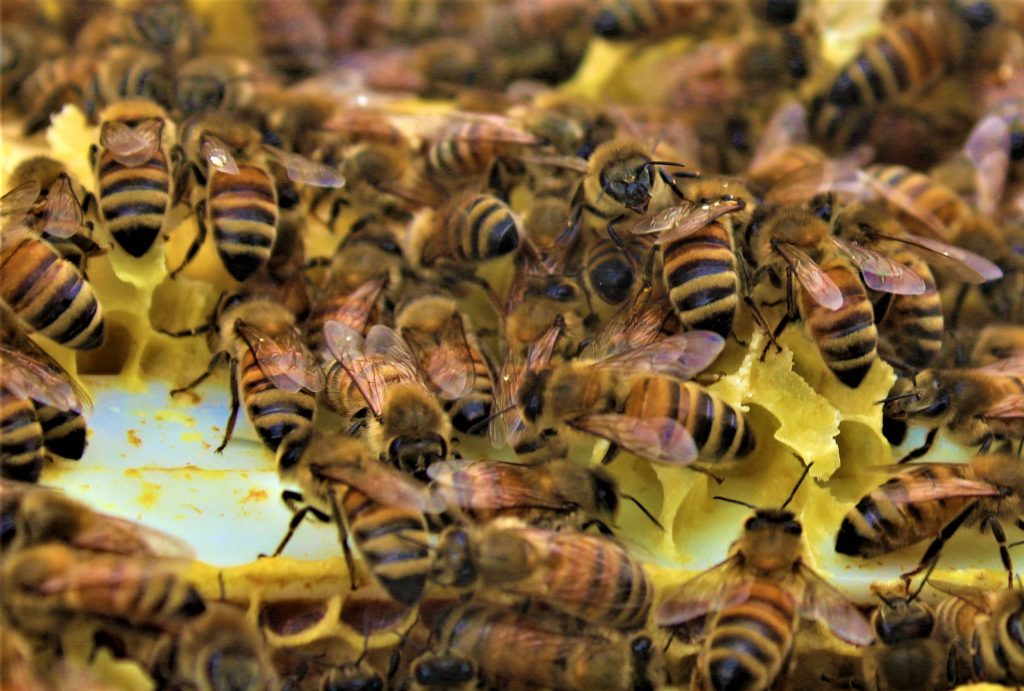
With schools closed, it’s a great time to learn about new things. Spring has brought a lot of flowers which in turn has brought a lot of honeybees. It’s a perfect time to get educated on honey bees and bee-keeping.
Kelly Wadsworth, a local beekeeper, was happy to share some information about beekeeping. Wadsworth has always loved bugs! About 10 years she ordered a beginning beekeeper kit and anxiously waited for it to arrive. She has been beekeeping ever since! She currently has 7 colonies of bees, all of which she obtained by gathering swarms either this year or in years past.
The first step to beekeeping is getting a hive for your bees. Next, you’ll need some basic supplies: a bee suit, gloves, and a bee smoker to name a few. Lastly, you need a swarm of bees.
There are some challenges beekeeping depending on where you live. Wadsworth said “In this area, one challenge is the dampness. We have long wet, damp and humid winters and it’s hard for the bees to keep their situation dry. I have opened up a hive and found green mold growing in there. Another challenge for people who live in more remote areas of Douglas County is bears. They have no problem tearing a hive apart to get the honey.“
There are some misconceptions about bees that are unfortunate. Kids often assume that bees are threats because they watch adults panic around them. Wadsworth specified “ The bees are not out to hurt anyone. They want to be left alone. They spend their time gathering nectar, pollen, taking care of larvae, taking care of the queen, and working hard to prepare for winter and keeping the colony in good shape.” While bees can be dangerous to those who are allergic, they are unlikely to sting unless provoked.
A swarm occurs when beehives get too big. Wadsworth states “In the spring, they are raising baby bees so fast and pretty soon there are way too many bees. They will produce a new queen. The old queen and some portion of the population of the hive, all leave.” In addition, Wadsworth notes that after they leave, they usually land in a tree or bush within a short distance to the hive. They then send out scouts to look for a place to set up a new hive.
If you see a swarm don’t be afraid! Wadsworth says to have a good long look at it and take some pictures because they are really a beautiful sight. Wadsworth warns “Don’t poke it with sticks, don’t kill it with RAID, just observe the beauty of this tiny culture that is doing all it can to survive” She encourages people to call a beekeeper if you know one or the Douglas County Bee group at 541-375-0393, they will gladly come and get them. If you have a love of bees like Wadsworth, you should consider learning more about this hobby. Beekeeping supports community pollination and provides the keeper with honey and beeswax. Wadsworth summed it up with a snippet about bees saying “I love the way they communicate with each other, keep order, take care of business, and work for the good of the whole hive. Everyone has a job. It’s a perfect tiny civilization.”
